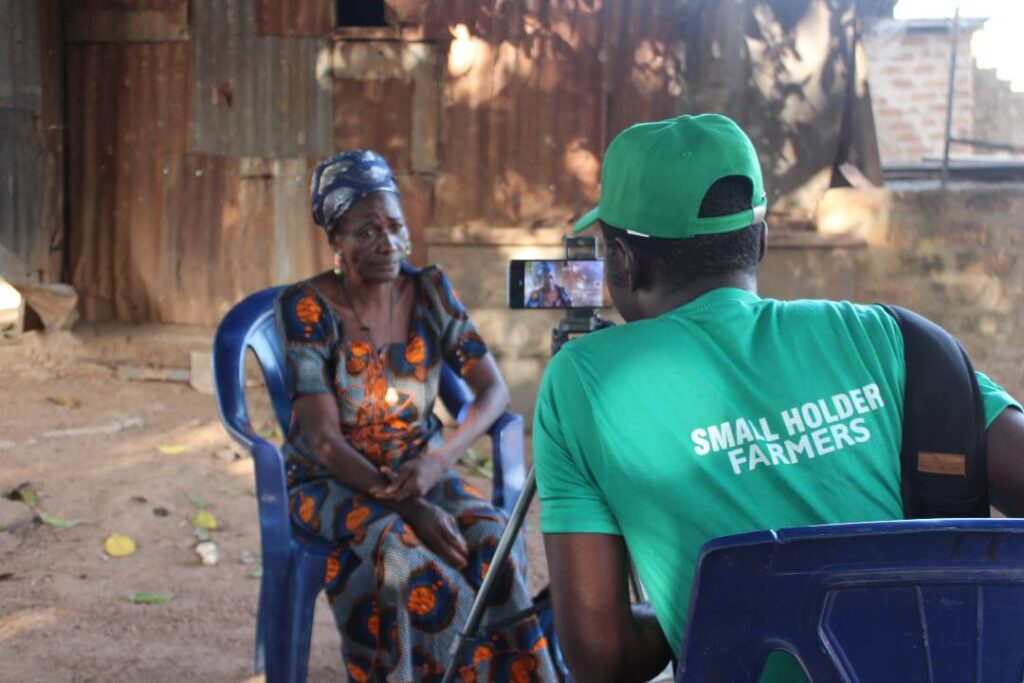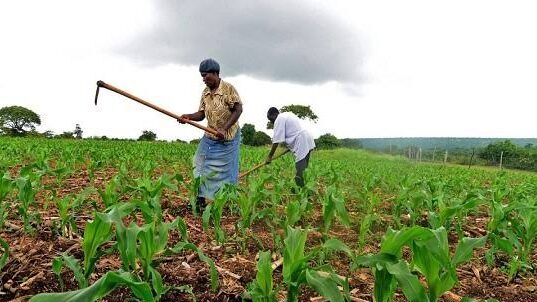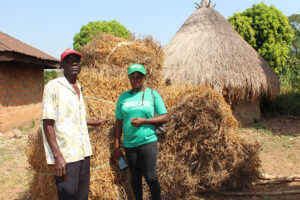Mbanan Agba is a 53 years old mother, a house wife who typically cultivates soybeans, locally known as “Suwanbin”, She lives in a typical remote community about 5 Kilometers away from Wannunne in Benue state Nigeria. She farms soybeans because it is one of the crops that does well on the soil in her locality even without inputs like fertilizer and pesticides application. “I produce 18-20 bags yearly” she mentioned. Here in our community, there are no micro finance or community banks, and we can barely access any financial support.
The land I use for farming belongs to the family and sometimes I have to hire more land at NGN10,000 per hectare to enable me increase the quantity of soybean; since the family land alone is small. Majorly, soybeans is seasonal, as such we rely on rainfall as the only source of water to plant between the months of June – July yearly.

I have never gotten any support in terms of trainings. I depend on my siblings and family members for labor and financial support. We share ideas on challenges and attempt solutions during cropping circles which are usually between raining seasons that last between April to late August and early part of September. I inherited “Suwanbin” seeds from my late father and usually reserve and store them out of my annual harvest for the next planting season.
We do not have farm machines here for cultivation, harvesting and processing. So we do everything manually. Because I have no other source of income, I have to sell out my harvest and use my money to pay bills like school fees, medicals, food, family and community obligations. She narrates.
In Benue state Nigeria smallholder farming is responsible for most of the domestic food consumption and a means of livelihood for most rural people and are more susceptible to the impacts of climate change. (Greenvest Baseline Survey,2022)


